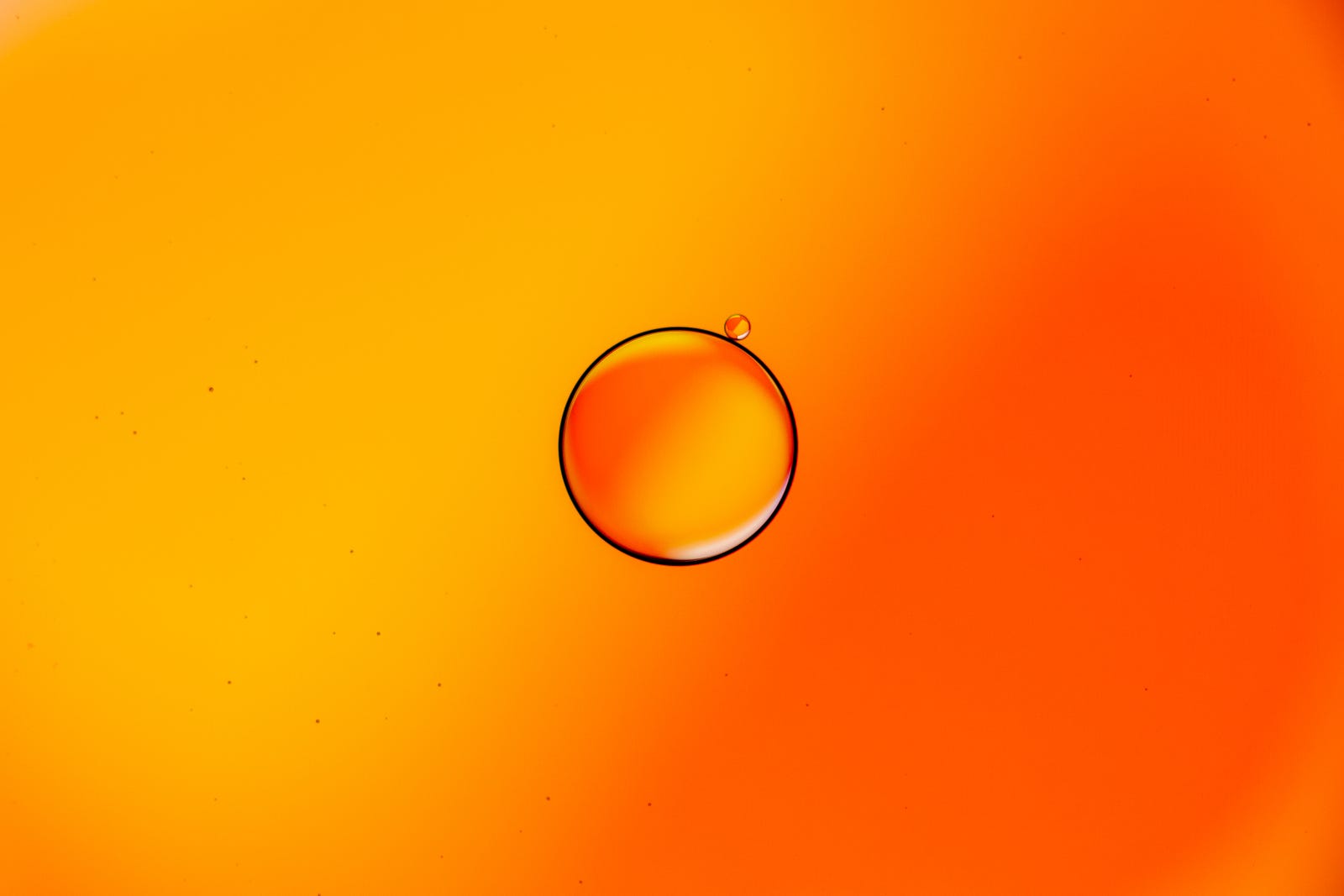OLIVE OIL-INFUSED COFFEE? USING OLIVE OIL AS A SALAD TOPPING? Starbucks recently announced the former, while I regularly do the latter. TikTokers are doing shots of the stuff, claiming it facilitates weight loss and clears the skin. Does olive oil do that? Today we look at olive oil and your health, specifically what experts think.
“Kusunoki left both ingredients as is, wrapping the salmon in the bacon and delicately heating both to elegant perfection.
Using the same concept behind the ramen staple seafood-pork broth, melding the umami of both fish and meat together created a powerfully savory flavor.
The olive oil bath he used to prevent even a drop of the fish’s juices from escaping was also an excellent touch.
In the end, his dish was the picture of a salmon’s savory deliciousness, perfectly recreated on the plate.”
― Yuto Tsukuda, 食戟のソーマ 19 [Shokugeki no Souma 19]
Olive oil history
Wild olives originated in Asia Minor (modern-day Turkey) about 6,000 years ago. Folks used the substance for numerous purposes, including religious rituals. Olive oil was also in oil lamps, soap, medicines, and skin care.
The modern olive tree probably originated in ancient Persia and Mesopotamia. The tree then spread toward Israel and Syria in the Mediterranean Basin and subsequently to North Africa.

Some scholars believe that olive cultivation started with the Ancient Egyptians. Archeologists discovered olive oil signs in Egyptian tombs from 2,000 years BC.
In Crete, by 3,000 BC, people widely cultivated olive oil, a highly prized commodity. Tree cultivation in Crete became prevalent in the post-palatial period. It was a central component of the island’s economy, as it was across the Mediterranean.
Olive oil reached a pinnacle with the Greeks, who embedded the oil into everything from food to fuel, perfume to contraceptives. Olive oil was also a major export product of Mycenaean Greece from around 1450 to 1150 BC. The Greeks may have produced olive oil by placing olives in woven mats and squeezing, with the oil collected into vats.
With Greek colonization of other parts of the Mediterranean, olive farming spread to Spain and throughout the Roman Empire. Trade increased with the Roman conquest of Greece, Egypt, and Asia Minor. The Romans introduced the olive press for production in the 5th century.
Olive oil and cancer
Researchers have studied olive oil for its potential health benefits, including its effect on cancer risk. While some evidence suggests that olive oil consumption reduces certain types of cancer, we do not fully understand its mechanisms.
Olive oil may have anti-cancer properties due to its high content of antioxidants, which can protect cells from damage caused by free radicals. Other research suggests olive oil helps reduce body inflammation, with inflammation thought to play a role in the development of certain cancer types.
Evidence of the relationship between olive oil consumption and cancer risk is inconclusive. We need more research is needed to understand olive oil’s potential fully. Moreover, the effects of olive oil may vary depending on factors such as the type and quality of the oil, as well as individual differences in genetics and lifestyle factors.
Experts recommend a balanced and healthy diet that includes a variety of foods to reduce the risk of cancer and other chronic diseases.
Olive oil and cognitive function
Olive oil may reduce the risk of Alzheimer’s disease.
One review found that a Mediterranean diet, which is rich in olive oil, may help to reduce the risk of cognitive impairment in older adults. Another study found that consuming extra-virgin olive oil may help to improve cognitive function in older adults with mild cognitive impairment.
The beneficial effects of olive oil are due to its high content of polyphenols, which are powerful antioxidants that may help to protect the brain from damage caused by oxidative stress.

While olive oil may have some benefits for reducing the risk of Alzheimer’s disease, more research is needed to understand its effects fully. Additionally, other lifestyle factors such as exercise, a healthy diet, and cognitive stimulation may also play a role in reducing the risk of cognitive decline and Alzheimer’s disease.
Olive oil and premature mortality
Olive oil consumption is associated with cardiovascular disease risk. There is no clear evidence that it is linked to better total and cause-specific mortality.
A 2022 study evaluated whether olive oil intake is associated with early mortality in two prospective cohorts of Americans.
Researchers estimated mortality risks among over 60,000 women (from the Nurses’ Health Study, 1990–2018) and nearly 32,000 men (Health Professionals Follow-up Study, 1990–2018). All were free of cardiovascular disease or cancer at baseline. The team assessed diet using a semiquantitative food frequency questionnaire every four years.
Here are the authors’ observations:
“We estimated that replacing 10 grams daily of margarine or butter with 10 g/d of olive oil was associated with about a one-seventh (13 to 14 percent) lower risk of total mortality. Replacing dairy fat with olive oil should drop risk by approximately one-seventh (13 percent). Finally, replacing olive oil with mayonnaise was estimated to drop early death risk by one-fifth (19 percent).”
The results appeared consistent for other death causes, including cancer, cardiovascular disease, neurodegenerative disease, and respiratory disease mortality. This study is the first to estimate the impact of replacing specific fat types with olive oil on mortality.
Of course, we need help to easily tease out the influence of olive oil on these health outcomes. The best research focuses on the heart benefits of olive oil.
Olive oil and heart health
Olive oil is generally considered heart-healthy due to its high content of monounsaturated fatty acids, which can help lower LDL (bad) cholesterol levels and reduce the risk of heart disease.
Numerous studies have suggested that consuming olive oil as part of a healthy diet may benefit heart health. For example, a review of 32 studies found higher olive oil intake was associated with a reduced risk of heart disease and stroke.

In addition, in a large clinical trial called the PREDIMED, scientists found that a Mediterranean diet supplemented with extra-virgin olive oil (or nuts) was associated with a lower incidence of major cardiovascular events (such as heart attack and stroke) compared to a reduced-fat diet for persons at high cardiovascular risk.
At a median follow-up of 4.8 years, the researchers stopped the study. The percentage of subjects experiencing a cardiovascular event was as follows:
- Mediterranean diet with extra-virgin olive oil 3.8 percent
- Mediterranean diet with nuts 3.4 percent
- Control (reduced-fat) group 4.4 percent
An intention-to-treat analysis showed the risk was nearly one-third (relative risk reduction of 31 percent) for a Mediterranean diet with extra-virgin olive oil and just over one-quarter (a relative reduction of 28 percent) for a Mediterranean diet with nuts, as compared with the control diet.
However, it is important to note that while olive oil can be a healthy addition to a balanced diet, it is still high in calories, and we should consume it in moderation. Other lifestyle factors (such as regular exercise, not smoking, and maintaining a healthy weight) are also important in reducing heart disease risk.
How might olive oil improve heart health?
There are several thoughts about how olive oil might shield the heart from harm. Olive oil contains monounsaturated fatty acids, which can drop levels of low-density lipoprotein, or LDL — so-called “bad” cholesterol — in the blood, according to the American Heart Association.
When LDL builds up in the blood vessel’s inner walls, thick deposits (plaques) can narrow and clog the arteries. Monounsaturated fats may help to fight this damage.
Olive oil is chock full of antioxidant compounds (polyphenols). These substances can protect at the cellular level.
My strategy? I use olive oil to replace less healthy fat sources — particularly full-fat dairy products and butter. Here are three ways to get more olive oil into your diet:
The information I provided in this blog is for educational purposes only and does not substitute for professional medical advice. Please consult a medical professional or healthcare provider for medical advice, diagnoses, or treatment. I am not liable for risks or issues associated with using or acting upon the information in this blog.
Thank you for reading “Olive Oil and Health — What Experts Think.”




